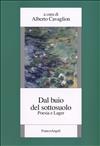
Il saggio analizza due contraddizioni che si riscontrano negli studi recenti sull’antisemitismo fascista. La prima riguarda il divario che emerge tra le testimonianze dei protagonisti e la ricostruzione degli storici sulle carte d’archivio: due quadri non coincidenti. Le intenzioni del regime non sempre si tramutarono in atti, per esempio nelle zone occupate. La seconda contraddizione riguarda i numeri. Di tutti i paesi finiti sotto l’occupazione nazista, dopo la Danimarca (0,12%) e la Finlandia (0,35%), l’Italia è il paese con la più bassa percentuale di vittime (17,3%). A spiegare questi numeri, non basta la scarsa consistenza demografica delle comunità italiane o la minore virulenza della polemica antiebraica. Tanto meno convince la lettura in chiave etica. A rendere così percentualmente alto il numero di chi trovò salvezza senza emigrare è stato il radicamento e la qualità dei rapporti che gli ebrei avevano saputo intessere nei decenni che seguono l’uscita dai ghetti. Non una spiegazione moralistica, ma è necessaria un’analisi storica sul lungo periodo.

















